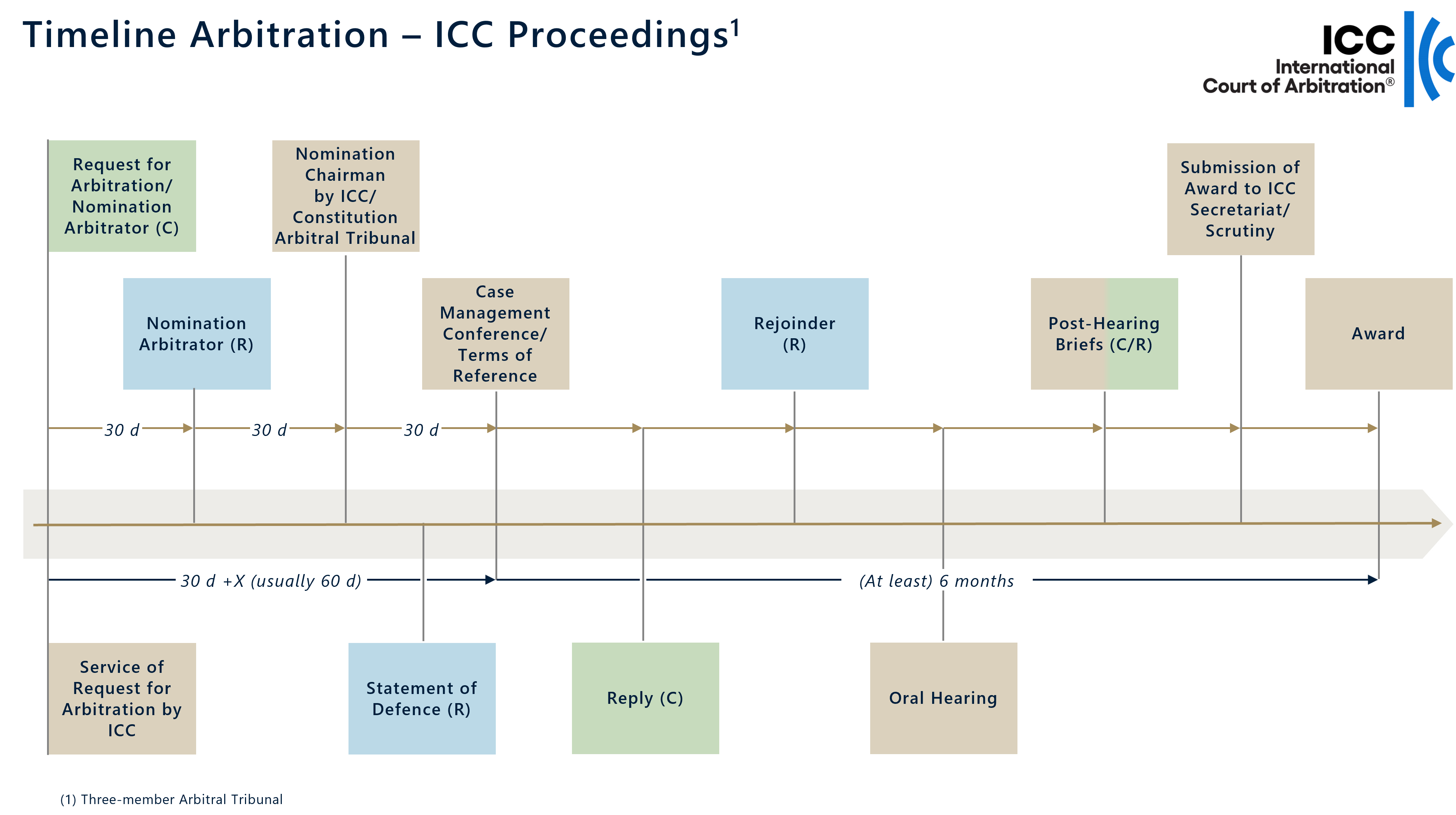Parties to a transaction can choose to conduct their arbitration ad hoc or through an arbitral institution. In ad hoc arbitration, the proceedings are managed by the arbitrators in alignment with the parties. An arbitration administered by an institution, by contrast, provides support in case one party is uncooperative or a neutral governing body is required to resolve certain procedural issues (e.g. to ensure the constitution of the arbitral tribunal via default rules, where an arbitrator is challenged in the course of the proceedings or in the event of a dispute over arbitrator fees). Due to these advantages, contracts with complex subject matter oftentimes specify an arbitral institution for the administration of the dispute.
In determining the most appropriate institution for potential proceedings, the parties have a large variety of options. Institutions chosen by European companies oftentimes include the ICC (Paris), the LCIA (London), the SCC (Stockholm), the DIS (Bonn/Berlin) and others. Each of these institutions provide its own set of procedural rules which applies in the absence of a specific agreement by the parties. The rules of different institutions vary significantly in certain key aspects:
Nomination of arbitrators: Some intuitions are given a lot of power to nominate the arbitrator(s), whereas at other institutions agreement by the parties is the primary basis for nomination of the arbitrator(s). The devil is in the details with the many different and nuanced default rules, including the required number of arbitrators. Notably, a sole arbitrator is the default option in expedited procedures under ICC Rules.
Arbitrators' fees and administrative costs: While some institutions (e.g. LCIA) provide hourly fees for arbitrators, others (e.g. ICC, DIS or SCC) calculate the arbitrators' fees based on the amount in dispute. Administrative fees are also typically based on the amount in dispute.
Timeline and duration of arbitral proceedings: In general terms, the procedural steps are comparable between institutions. The (prescribed) deadlines provided for each procedural step may differ, however. Taking the timelines under DIS and ICC Rules as an example:


With respect to the total duration of the proceedings, average numbers provided by the institutions vary between 18 months (see DIS, Advantages of Arbitration) and 26 months (see ICC Dispute Resolution Statistics: 2024; also see SCC, Statistics 2024: award rendered in 18 months; LCIA, Costs and Duration Analysis - 2024: median duration 20 months).
Encouragement for settlement: Under the ICC Rules, the tribunal is not required or expected to take an active role in promoting settlement. Settlement may, however, be utilized by the tribunal as one case management technique. The DIS Rules place particular emphasis on the encouragement of settlement of the dispute: Unless one party objects, the tribunal shall, at every stage of the arbitration, seek to encourage settlement of the dispute.
Scrutiny: Institutional scrutiny of the arbitral award involves the institution reviewing the arbitrator's draft award before it is formally issued to identify any potential defects and ensure the quality of the award. In 2018, the DIS introduced a "scrutiny light" mechanism which focuses on scrutinising only formal requirements of the award. In contrast, the ICC may make substantive suggestions concerning the award.
Expedited proceedings: Many institutions have implemented expedited proceedings, e.g. with a duration of 3 months after the reference to the arbitrator (SCC) or 6 months after the case management conference (DIS, ICC); others do not specify the length of expedited proceedings (LCIA). While ICC rules provide for the automatic application of expedited proceedings depending on the value of the dispute, others leave it to the parties’ agreement (DIS, SCC) or to a party's motion (LCIA).
Ability to obtain interim relief: For information regarding obtaining interim relief and emergency arbitrations under the various rules, see our earlier blog post here.
Other factors, such as the experience of the case management team handling the case at the institution play an important role in choosing the right institution. Complex proceedings may well benefit from the experience of a well-established institution.
While it is difficult to anticipate the advantages and disadvantages of the many arbitration institutions in a future dispute, parties and their counsel can (and should) consider costs, timing and nuanced characteristics of the default rules when selecting an arbitration institution, taking into account anticipated interests of the party.



